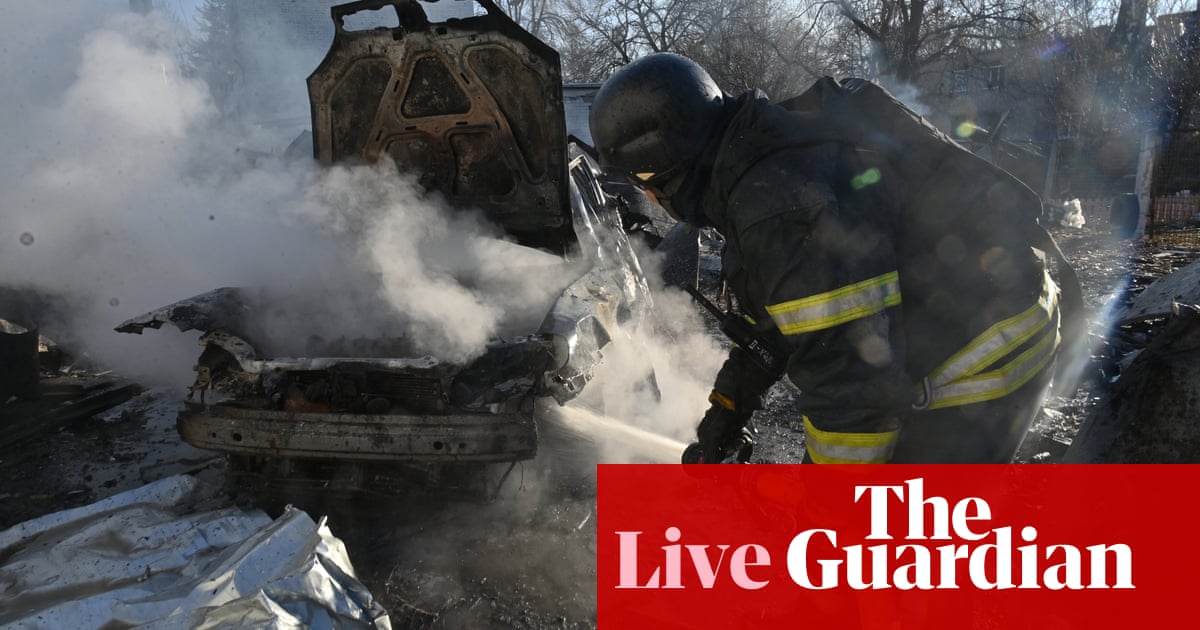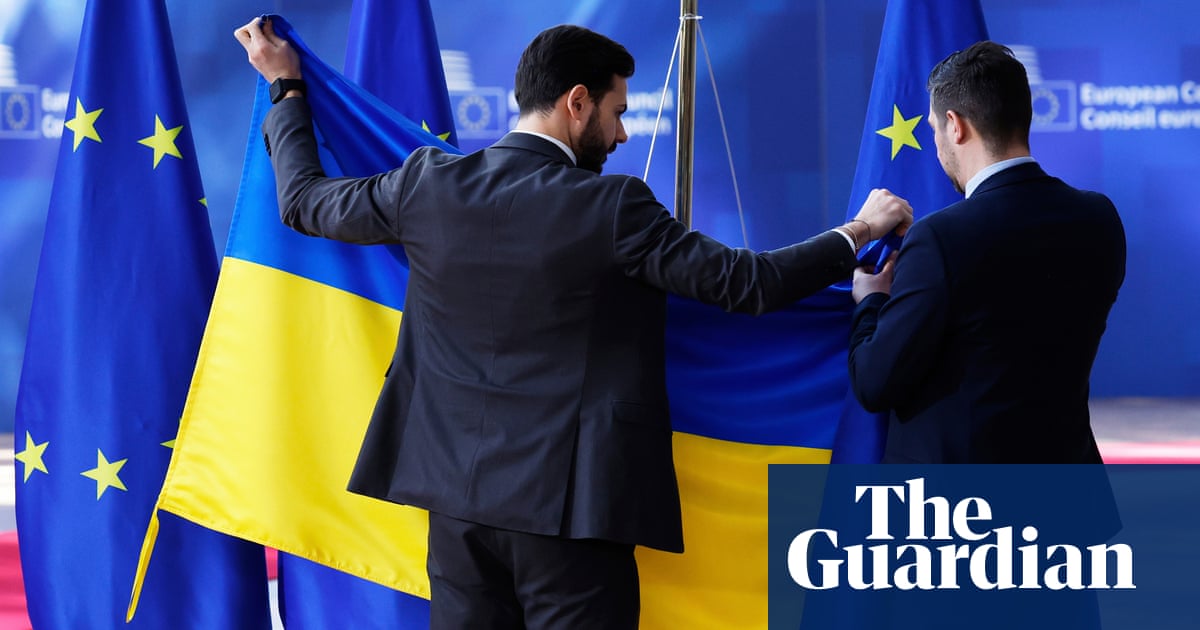Germany warns Canada that Europe’s appetite for natural gas is set to shrink | CBC News
A top German envoy is pouring cold water on calls for Canada to ramp up natural gas exports to Europe.
In a briefing for journalists at Germany’s embassy in Ottawa on Friday, Jennifer Morgan, the country’s state secretary and special envoy for international climate action, warned that Germany and Europe will require less natural gas from countries like Canada in future.
“All studies show that the market is going to shrink,” Morgan said. “Germany will be driving forward on renewables, and gas demand will decline.”
Morgan, a U.S.-born former head of Greenpeace International, is Germany’s first special envoy for international climate policy. She represents Europe’s biggest economy and largest emitter and works frequently with her Canadian counterpart, Environment and Climate Change Minister Steven Guilbeault.
Morgan said that, like Canada, Germany has a binding law on reducing emissions — but it intends to achieve net-zero by 2045, half a decade before Canada expects to hit that target. She suggested the role natural gas plays in Germany’s economy is set to diminish.
“It is a part of the transition, but it is not the long term,” Morgan told reporters.
She cited studies and projections showing that Germany is expected to reduce its gas imports by 30 per cent by 2030 and 96 per cent by 2050. She said Europe is also expected to reduce natural gas imports by about 25 per cent by the end of this decade.
Morgan said these are projections, not targets.
Europe’s waning appetite for natural gas can be attributed in large part to Russia’s war on Ukraine. Russia was once a significant supplier of natural gas to Europe; it has been accused of throttling that supply in retaliation for crippling sanctions imposed by Germany and other Western allies.
More than 40 per cent of Europe’s natural gas came from Russia before it launched its full-scale invasion of Ukraine in 2022. That share of the European natural gas market has now plummeted to less than 15 per cent. Norway became the EU’s top gas supplier in 2023, followed by the United States and North Africa.
When asked whether Germany needs Canadian natural gas to replenish its stockpiles, Morgan said her country increasingly relies on renewables.
“We need to continue to have imports on LNG in the future, but currently, our gas reserves are full,” Morgan said.
Morgan cited Germany’s growing reliance on energy efficiency measures and renewables in its electricity grid, saying these now account for 60 per cent of electricity output.
The envoy’s remarks would come as no surprise to energy market experts, who have argued that Canadian liquefied natural gas won’t address the European Union’s short-term energy needs.
Morgan said Germany does need Canada’s critical minerals and hydrogen. The two countries recently committed to a $600 million hydrogen export pact in Atlantic Canada.
When that announcement was made in July, Germany’s deputy head of mission, Karina Häuslmeier, said that Berlin was “equally committed” to developing Canada’s burgeoning clean hydrogen industry.
Karina Häuslmeier, deputy head of mission at the German Embassy in Ottawa, outlines Germany’s commitment to the multimillion-dollar commitment for hydrogen export in Atlantic Canada.
Melissa Lantsman, deputy leader of the Conservative Party of Canada, said that despite the German envoy’s message, her party remains committed to expanding Canada’s LNG industry and displacing energy produced by “foreign competitors and dictators.”
Conservatives also attacked the German minister’s environmental credentials.
“While the CBC interviews climate activists associated with Greenpeace from foreign countries to make the case for killing Canadian paycheques, the fact is that Europe came knocking begging for our world class LNG and [Prime Minister] Justin Trudeau slammed the door in their face and said there was no business case for it,” Lantsman said in a media statement.
Conservative Leader Pierre Poilievre has committed explicitly to sending more Canadian natural gas to Germany and other European countries.
“The Japanese, the Greeks, the Germans have all asked for our natural gas so they can break their dependence on [Russian President Vladimir] Putin. Trudeau says there’s no business case,” Poilievre said at a July news conference.
“Obviously, there’s a business case. I will be exporting Canada’s natural resources, particularly to break European dependence on Putin and turn dollars for dictators into paychecks for our people.”
According to Natural Resources Canada, Canada was the fifth-largest global producer of natural gas and the sixth-largest exporter in 2022. Most of that goes to the U.S., but that should change once several projects — LNG Canada Phase 1, Woodfibre LNG and Cedar LNG — come online in B.C. by the end of this decade. Those projects are expected to open up Asian markets to Canadian gas.
The Canadian group Energy for a Secure Future backs Canadian natural gas exports. The group’s chair, Shannon Joseph, said that Canadian politicians and business leaders should take Germany’s comments seriously but continue expanding Canadian natural gas production and exports.
“There’s a lot of demand growth in Asia, which was always going to be the area with the most demand growth. So I think Canada needs to take a big picture approach and get our resource where it’s needed,” Joseph said.
Related
Zelenskyy reiterates call for air truce after huge Russian attack…
We need Russia to stop attacks, Zelenskyy says, backing calls for truce in air, at seaUkrainian president Volodymyr Zelenskyy has responded to overnight attacks
Europe scrambles to rearm as Trump threatens security guarantees and…
CNN — European leaders have vowed to rearm the continent at historic emergency talks h
Russia launches ‘massive’ attack on Ukraine after Europe rushes to…
Ukraine's energy and gas infrastructure came "under massive missile and drone shelling" by Russia on Friday, a Ukrainian minister said."The energy and gas infra
American severance may be averted, but Europe’s leaders must fear…
With a mixture of regret, laced with incredulity, European leaders gathered in Brussels to marshal their forces for a power struggle not with Russia, but with t












